Behind the dramatic escape of the former Nissan Chairman
(Baonghean) - While the whole world was still rejoicing in the atmosphere of welcoming the new year 2020, a surprising piece of information appeared and immediately became a "media blockbuster", which was the mysterious escape of former Nissan Group Chairman Carlos Ghosn to Lebanon while awaiting trial for financial fraud charges.
Not only are people "searching" for information about how Carlos Ghosn managed to leave Japan while his three passports were still being held by his lawyers, they are also curious to learn about the downfall of this figure who was once considered a "star in the world's auto industry".
"For the stars" of the time
Carlos Ghosn's escape journey to Lebanon via Turkey became a fascinating story for the international media because it resembled a thriller with the main character ranked among the highest in the world's automobile manufacturing industry.
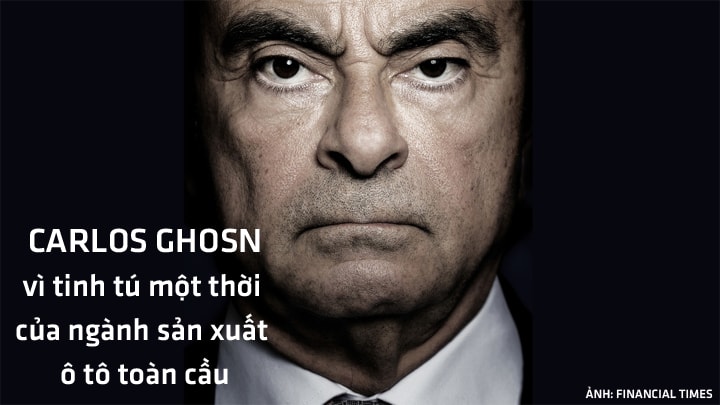 |
The position of leader of the world's second largest automobile manufacturing corporation also gives Carlos Ghosn a political position that any businessman would envy, wherever Nissan has factories, in Japan, France, England and of course Lebanon - his origin.
Carlos Ghosn was born in 1954 in Brazil to a family of Lebanese immigrants. Carlos Ghosn spent his childhood in the capital Beirut, but when he grew up, he went to Paris, France to study at the prestigious École Polytechnique - where he was equipped with in-depth knowledge in the field of automation.
18 years after graduating, Carlos Ghosn worked for the Michelin tire manufacturer before joining Renault in a “headhunting” campaign of this group. During the most difficult period of the French car manufacturer, Carlos Ghosn carried out a harsh restructuring campaign, bringing profits back to Renault’s financial statements. That was also the starting point for Carlos Ghosn’s name to “take off” in the world automobile manufacturing industry.
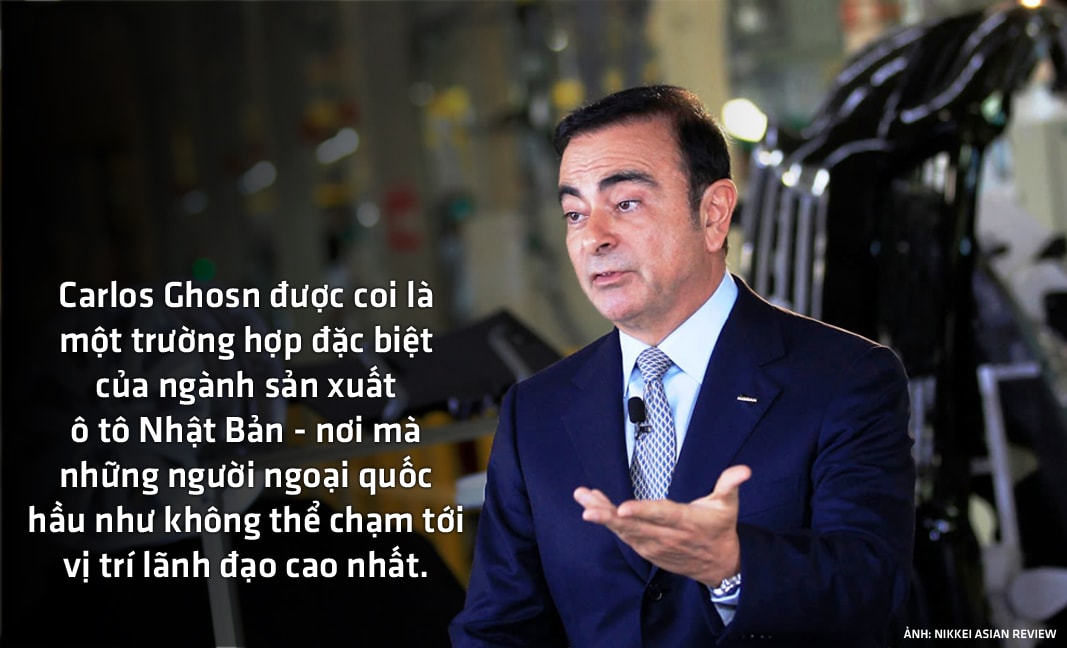 |
In 1999, Carlos Ghosn's ability to turn things around was demonstrated again when Renault bought 43.4% of Nissan's shares, saving Nissan from the brink of collapse. Carlos Ghosn is considered a special case in the Japanese auto manufacturing industry - where foreigners are almost unable to reach the top leadership positions. Jürgen Schrempp, former Chairman of Daimler Chrysler Group at that time, compared Carlos Ghosn to an "icebreaker", changing the "deeply rooted" business practices in the industry with the conservative rules of Japan.
After forming the Renault-Nissan alliance, Carlos Ghosn continued to promote the association with Mitsubishi, creating the second largest automobile manufacturing alliance in the world with about 470,000 employees worldwide, accounting for more than 10% of car production sold in the world market.
In the automobile manufacturing industry, Carlos Ghosn is considered one of the most successful business leaders, a star with a halo shining for the past 20 years. Carlos Ghosn's breakthrough idea is to cross-own shares between companies without merging them together. At the same time, holding the position of Chairman of Renault, Nissan and Mitsubishi, and concurrently serving as CEO of Renault, Carlos Ghosn truly created the "Ghosn empire" in the global automobile manufacturing industry.
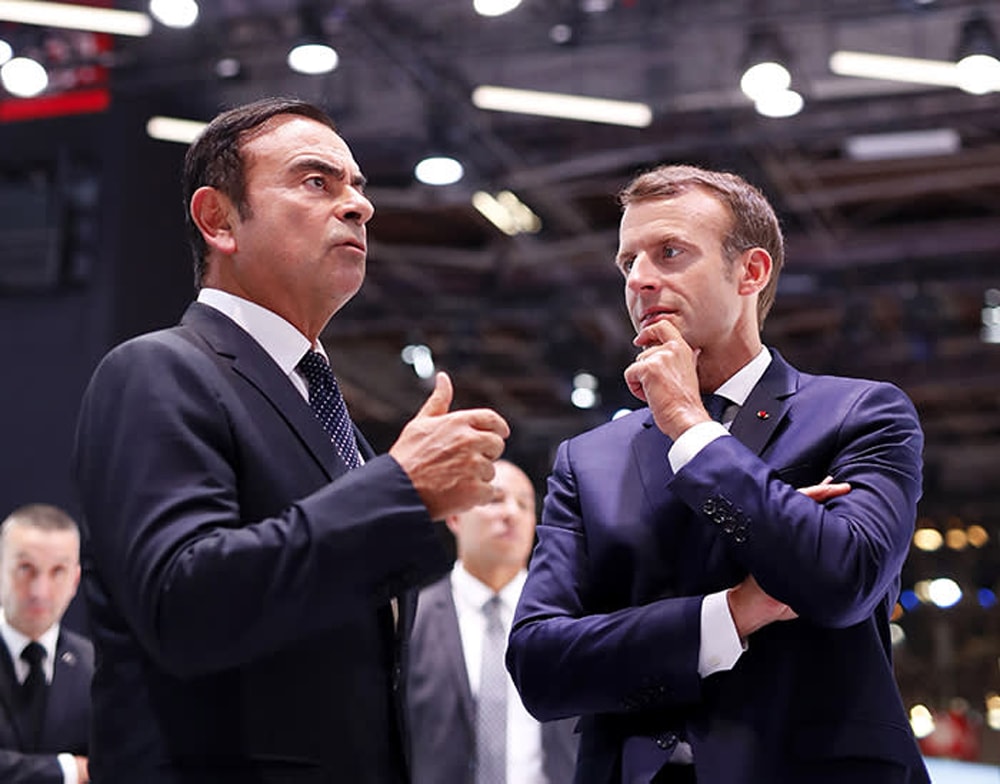 |
| Carlos Ghosn and French President Emmanuel Macron at the Paris auto show in October 2018 - a month before his arrest. Photo: Getty |
The collapse of a star
But the afternoon of November 19, 2018, was a historic turning point in Carlos Ghosn’s career, marking the fall of the once-famous “Ghosn star”. When his private plane landed at Haneda Airport in Tokyo, Carlos Ghosn planned to have dinner at his favorite sushi restaurant with his daughter and chair a Board of Directors meeting the next day. But before Carlos Ghosn could leave the airport, prosecutors boarded the plane and made an arrest.
Arrested at the airport, Carlos Ghosn’s first call for legal help was to the most important person behind the arrest. It was an unprecedented case, shocking the Japanese business community. But for some key figures at Nissan, it was the inevitable result of a nearly year-long investigation – an investigation that was kept secret under an agreement between the whistleblowers and the authorities.
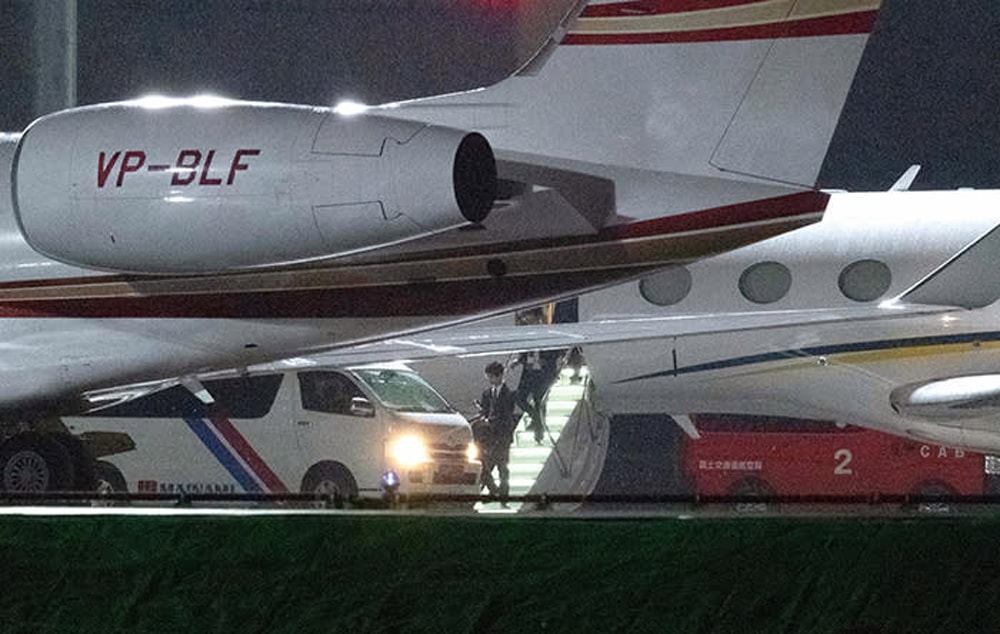 |
| Carlos Ghosn's arrest at Haneda Airport in November 2018. Photo: Getty |
After Carlos was arrested, the "deep secret" stories of Carlos Ghosn gradually broke out, that the tension had surrounded him for a long time. He had conflicts with Renault's largest shareholder, the French Government, about his excessive salary. Meanwhile, at Nissan, he was criticized for not coming up with any new car models that were truly inspiring. And most importantly, many of his decisions in all three companies were opposed by other members of the Board of Directors. Public opinion once questioned why a person who once stood at the pinnacle of glory could make such wrong decisions?
For those close to Carlos Ghosn, who are also secretly pushing for the investigation against him, the key factor is his overwhelming desire to assert himself, always wanting to reach the position of the head of the world's number 1 car manufacturer. They accuse him of pushing for a complete merger between Nissan and Renault to surpass the scale of Toyota and Volkswagen, thereby continuing the alliance with Fiat Chrysler Automobiles to become the world's largest car manufacturer. But Carlos Ghosn's desire makes it difficult for Nissan and Renault to shift to the field of electric cars and autonomous cars, pushing some key members of the group to carry out a shocking coup.
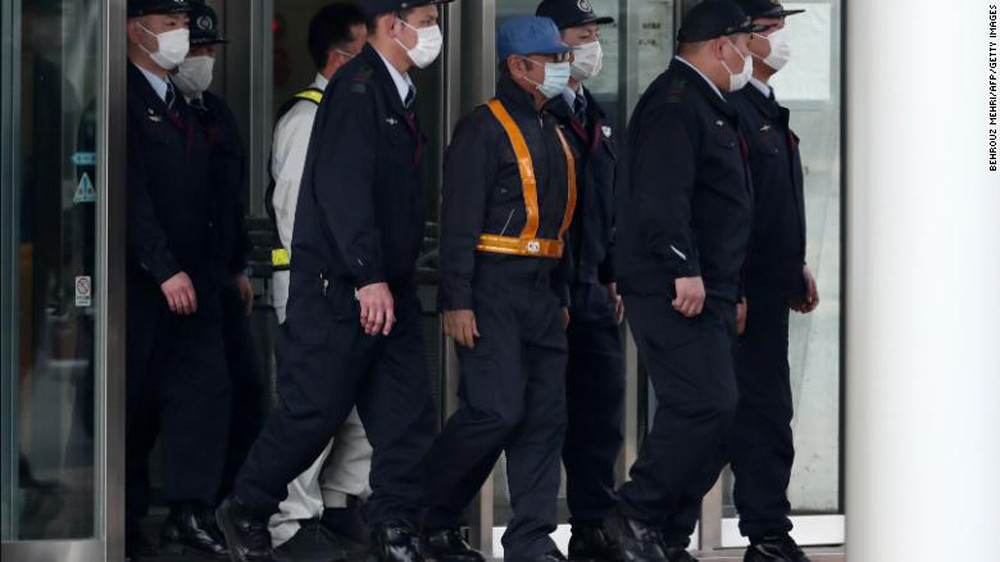 |
| Ghosn paid $13.8 million in bail before fleeing. Photo: Getty Images |
Carlos Ghosn's arrest has created a mixed public opinion. His supporters believe he is the victim of a conspiracy by opponents of the Nissan-Renault merger plan. On the contrary, his opponents have made extremely serious accusations, that he abused his trust to falsify financial reports and took advantage of the company's assets for personal gain. The official charges against him by the prosecution are falsifying his personal income of about 83 million USD over 8 years and abusing his trust to transfer millions of USD out of the company's accounts. However, Carlos Ghosn denies all these allegations.
According to the plan, the Tokyo Court will start the trial of Carlos Ghosn in April 2020. But with the escape to Lebanon and not being extradited to Japan because Lebanon and Japan do not have an extradition treaty, the secrets behind Carlos Ghosn's spectacular escape are unknown until when they will be clarified. Without answering the question "Is Carlos Ghosn a good person or a bad person?", the Carlos Ghosn case is pushing the Japanese auto business world into another big and important question: "Can a foreigner really become a part of a Japanese company?"
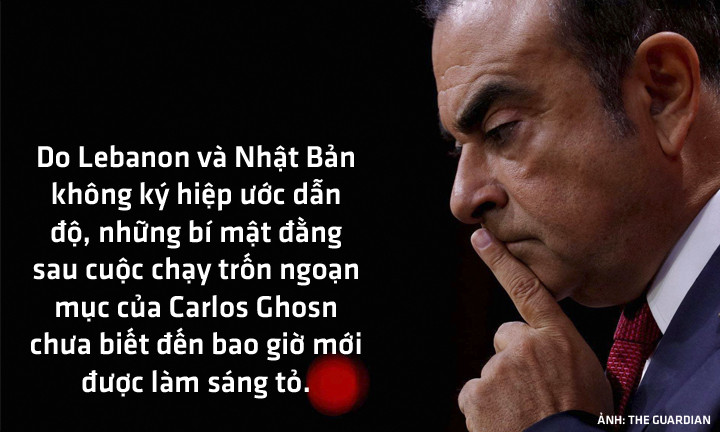 |

